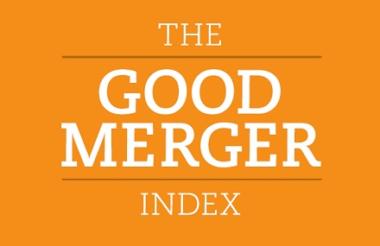Only 70 mergers involving 142 charities took place in the sector in the year to March 2017, according to a new report by a consultancy specialising in mergers.
The Good Merger Index, published by Eastside Primetimers, found that less than one in every thousand of the 167,000 charities on the register was involved in a merger last year.
It said that mergers “remain rare” and that charities are not exploring merger in a “timely and strategic manner”.
The findings are are broadly similar to previous years. In the year to March 2016 there were 54 mergers involving 116 organisations and in the year to March 2015 there were 61 mergers involving 129 organisations.
The report found that mergers often took place in situations where one of the charities was in financial trouble, and that mergers were often a form of rescue from financial and strategic weakness.
The report found that 39 of the 70 mergers were takeovers, in which a smaller charity was absorbed into a larger one. Mergers of equals accounted for 20 out of 70 mergers. Another five involved one charity becoming a subsidiary of another. Five involved an asset swap in which services moved between two charities that preserved their own identities. And one involved the formation of a group structure.
The report found that the most common organisations to merge were federated charities, supported housing charities, and mental health charities. These accounted for more than a third of all mergers.
'Not yet able to grasp the nettle'
The mergers involved the transfer of £174.5m of income from one charity to another. The combined income of the organisations was £974.9m.
The single largest formal merger was the £27.9m consolidation of Action for Blind People into RNIB. These charities had existed in a group structure for several years.
The largest completely new merger was the £18.5m merger of the Chapter 1 Charity into the Salvation Army Housing Association.
“On the whole, we are left with an impression of a charity sector not yet able to grasp the nettle and explore the need for greater consolidation, or do so in a timely and strategic manner,” said Richard Litchfield, chief executive of Eastside Primetimers, in his introduction to the report. “This is despite continuing competition for constrained resources, a degree of duplication in services and the duty of charity managers and trustees to consider the best means to meet their charitable objectives in this environment.”
Litchfield said his organisation was currently working on a new fund to encourage charities to merge, in association with the Social Investment Business and a group of other funders.
|
|
Related articles












